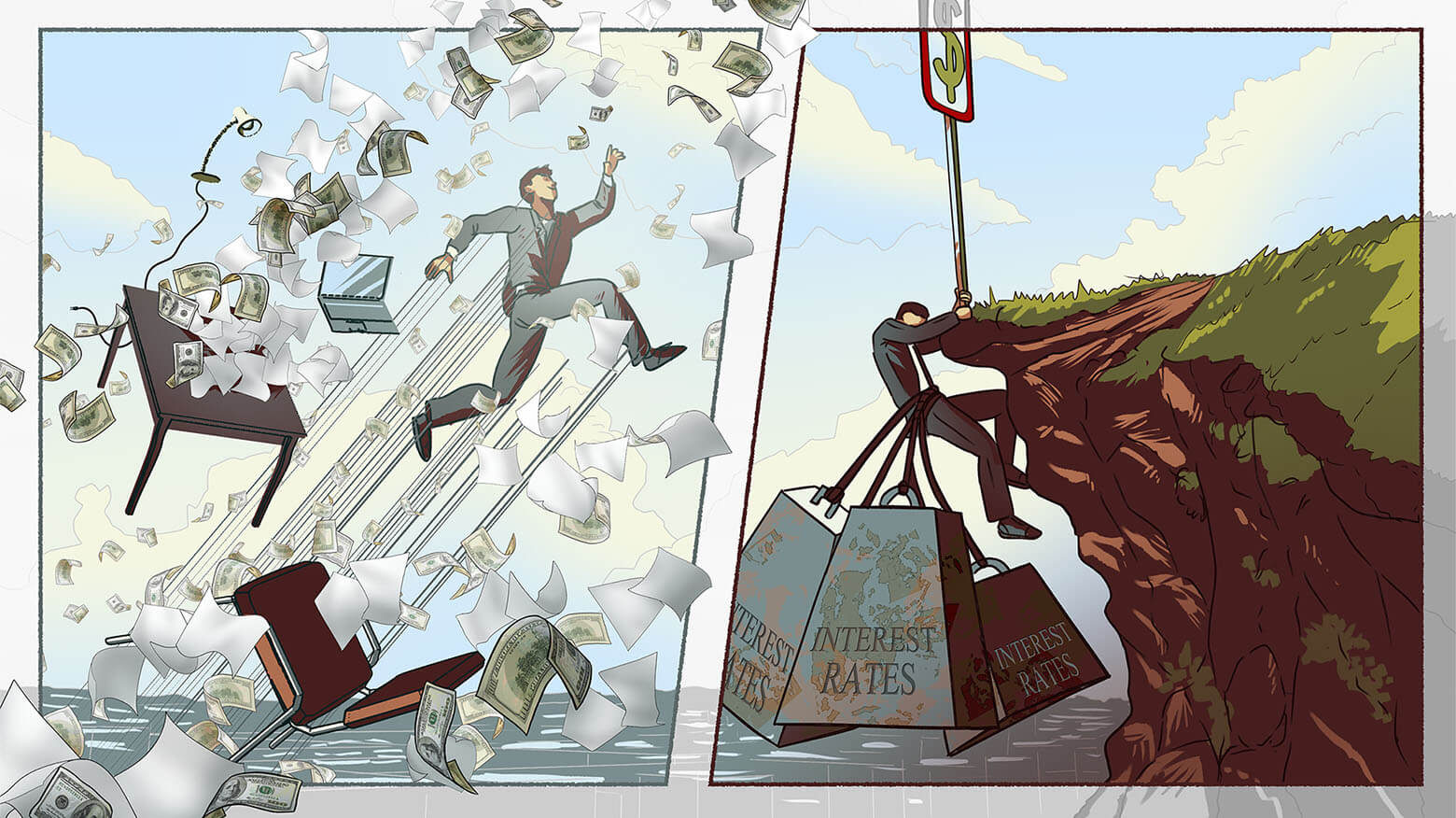The Federal Reserve’s latest move was to encourage lending, not to stimulate borrowing. (There are plenty of wannabe borrowers sitting on the sidelines, waiting their turn.) The Chinese curse comes to mind here – may you live in an interesting time. This is an interesting market. This market will wash out a lot of investors who jumped into it for the wrong reason – it was going up and they felt they had to be there.The fixed income market is going through the readjustment of risk. The spreads between risky and not risky assets have gotten to absurd levels. I wrote about it before, Russian companies were borrowing money at a few percentage points (or less) above T-Bills. How rational is that? Not very! Lenders were not properly compensated for taking risk (providing risky loans). The defaults in the subprime space reminded lenders what risk looks like (something they’ve forgotten in the latest frenzy).However, as it usually happens the risk re-adjustment will probably go from one extreme to another, there is a good chance that risk premium will overshoot its normal level and go to a higher extreme. We are not there, yet. For instance high yield (junk) bonds usually have a yield 5% above risk free bonds (T-bills), several months ago, that spread got as low at 1%. Right now spreads are approaching 5%, but they are less likely to stop there and go higher (well, this is how the average is created). This will (and already has) cause a dry up in private equity deals, breaking one leg under the market.
Portfolio managers are in a pickle, if they own corporate bonds – risk premium and thus borrowing rates are likely to rise. So it’s not a great place to be (maybe the very short end of that spectrum is safe). The Fed, with yesterday’s move, signaled that the next move in interest rates is likely to be down, not up. Action in T-bills shows that this is where the market finds safety. However, returns from T-bills are miniscule and will barely compensate investors for (understated) inflation.
Of course, depending on one’s investment horizon, the right stocks are still a place to be. What are the right stocks? The ones that have little exposure to consumer discretionary spending, whose business is not tied to heavy dependence on consumer financing (i.e. home equity loans), financials should be owned with caution – despite the Fed’s latest action it may get a lot worse before it gets better. You want to look at companies that don’t heavily rely on outside financing, in other words have strong balance sheets and don’t have large amounts of debt maturing in the near future. All this being said, a company in trouble is often a good investment at the right price.
Markets painted all financials with the same gloomy brush, all financials are not created equal. Lincoln Financial and US Bancorp (USB) for example have little exposure to sub-prime, but they are still down significantly with the rest of the pack. When I talked to my business partner this morning he said something that really struck me as the right attitude for this market (or actually any market). “Next time you make a decision ask yourself – what would Warren Buffett do?” He’d be patient and long-term oriented. He’d look at chaos and fear as opportunity. And no, the world is not coming to an end; we survived many wars, credit crunches, terrorist attacks and even Paris Hilton going to jail. We’ll be OK this time too.










0 comments